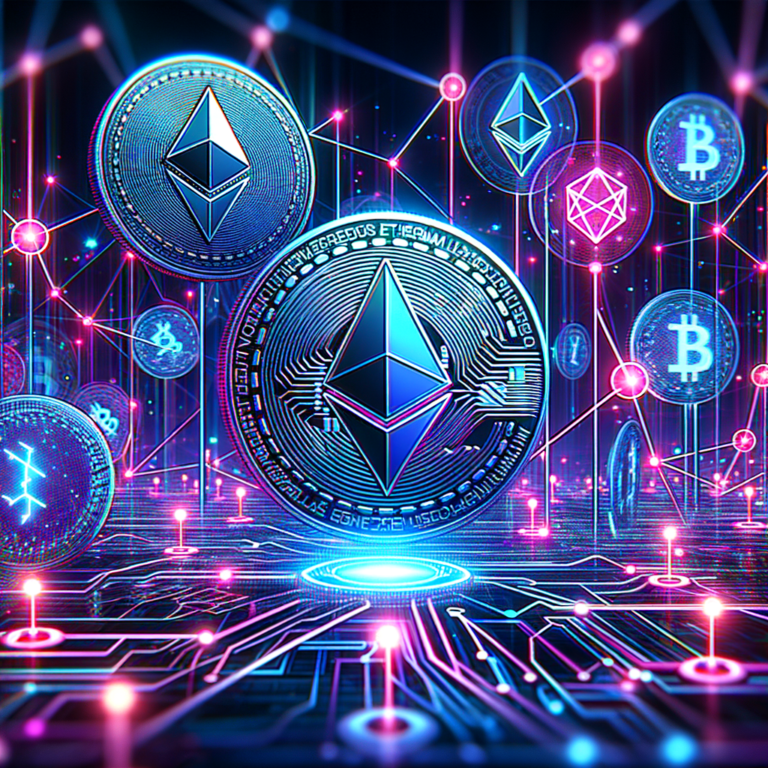Unlocking Potential: A Deep Dive into NFT Licensing
Non-fungible tokens (NFTs) have surged in popularity, transforming the digital landscape by providing a unique way to own, trade, and leverage digital assets. As the market for NFTs continues to evolve, understanding the complexities of NFT licensing is crucial for maximizing their potential and ensuring legal compliance. This article delves into the intricacies of NFT licensing, exploring its significance, legal frameworks, and future trends, thereby equipping creators and collectors with the knowledge to navigate this innovative domain effectively.
Understanding the Basics of NFTs
Non-fungible tokens (NFTs) are digital assets on a blockchain with unique identification codes and metadata that distinguish them from each other. Unlike cryptocurrencies such as Bitcoin or Ethereum, NFTs are not interchangeable, making them ideal for representing ownership of unique items. They can encapsulate a wide range of assets, from digital art and music to collectibles and even real estate. The blockchain technology underpinning NFTs ensures the authenticity and traceability of each token, making forgery and theft exceedingly difficult. This uniqueness and security attribute largely contributes to the burgeoning interest and value in NFTs.
NFT Licensing: What It Is and Why It Matters
NFT licensing involves the legal permissions and restrictions placed on the use of the digital content associated with an NFT. It dictates how, where, and by whom the content can be used, impacting everything from reproduction to distribution. Licensing is crucial because it protects the rights of creators while allowing others to legally utilize the digital asset under agreed terms. This not only helps in maintaining the value of the NFT but also in preventing unauthorized use, thereby supporting both the creator’s rights and the buyer’s investment.
Key Legal Considerations in NFT Licensing
When dealing with NFT licensing, several key legal considerations must be addressed to mitigate risks and ensure compliance. Copyright law is primary among these, as it governs the creation and distribution of digital content. Understanding who holds the copyright and the scope of the rights transferred in an NFT transaction is vital. Additionally, contract law plays a critical role, as the terms of the NFT agreement need to be clear, enforceable, and transparent to avoid disputes. Lastly, considering jurisdictional differences in digital asset laws is essential, as NFT transactions often cross international borders.
Navigating Intellectual Property Rights in NFTs
Intellectual property rights (IPR) in the context of NFTs can be complex. Typically, purchasing an NFT does not automatically confer ownership of the underlying intellectual property to the buyer unless explicitly stated in the licensing agreement. It is crucial for both creators and buyers to understand the extent of the IPR attached to an NFT to avoid legal complications. Creators should carefully consider the rights they are licensing to ensure they retain control over their work, while buyers should be aware of what they are allowed to do with the NFT.
Different Models of NFT Licensing Agreements
NFT licensing agreements can vary widely depending on the creator’s preferences and the nature of the content. Some common models include single-use licenses, which allow one-off use of the digital content, and multiple-use licenses, which permit broader utilization. Another model is the royalty-based agreement, where the original creator receives a percentage of sales each time the NFT is sold to a new owner. These models provide flexible frameworks that can be tailored to suit the needs of both creators and consumers, balancing rights and rewards.
How Licensing Impacts NFT Valuation and Use
The type of licensing agreement attached to an NFT significantly influences its valuation and usability. An NFT with a restrictive license may be less attractive to potential buyers, as it limits how the asset can be used. Conversely, a more permissive license can enhance the NFT’s appeal and market value. For instance, an NFT that includes commercial rights is likely to be more valuable than one that permits only personal use. Thus, the specifics of the licensing terms are directly correlated with both the functional and financial value of NFTs.
Real-World Applications: Case Studies of NFTs
Exploring real-world applications of NFTs provides insight into their potential and versatility. For instance, digital artists like Beeple have revolutionized the art world by selling artwork as NFTs, allowing them to earn royalties on subsequent resales. In the entertainment industry, companies like Warner Bros have issued NFTs as digital collectibles tied to popular franchises, adding a new layer to fan engagement. These case studies demonstrate the varied applications of NFTs and highlight the importance of robust licensing agreements in facilitating these opportunities.
Future Trends in NFT Licensing and Regulation
As the NFT market matures, trends in licensing and regulation are expected to evolve. Increased regulatory clarity will likely emerge as governments and international bodies seek to standardize practices across jurisdictions. This could result in more uniform licensing agreements and possibly the development of global standards for NFT transactions. Moreover, technological advancements may introduce new forms of licensing agreements facilitated by smart contracts, making transactions more secure and efficient.
Best Practices for Creators and Collectors
For creators, best practices include clearly defining licensing terms and understanding copyright laws to protect their interests. They should also consider using smart contracts to automate royalty payments. For collectors, it’s crucial to thoroughly review the licensing agreement and understand what is being purchased. Due diligence in verifying the authenticity and legal standing of NFTs before acquisition can prevent future legal issues. Both parties should remain informed about evolving laws and technologies to navigate this rapidly changing landscape effectively.
The realm of NFTs holds significant promise within the digital economy, offering novel ways for creators to monetize their work and for collectors to invest in digital assets. As the market continues to grow, the importance of understanding NFT licensing will only increase. By staying informed about legal considerations, embracing best practices, and keeping an eye on future trends, stakeholders in the NFT space can unlock their full potential while safeguarding their interests and contributing to the vibrant dynamics of the digital economy.

